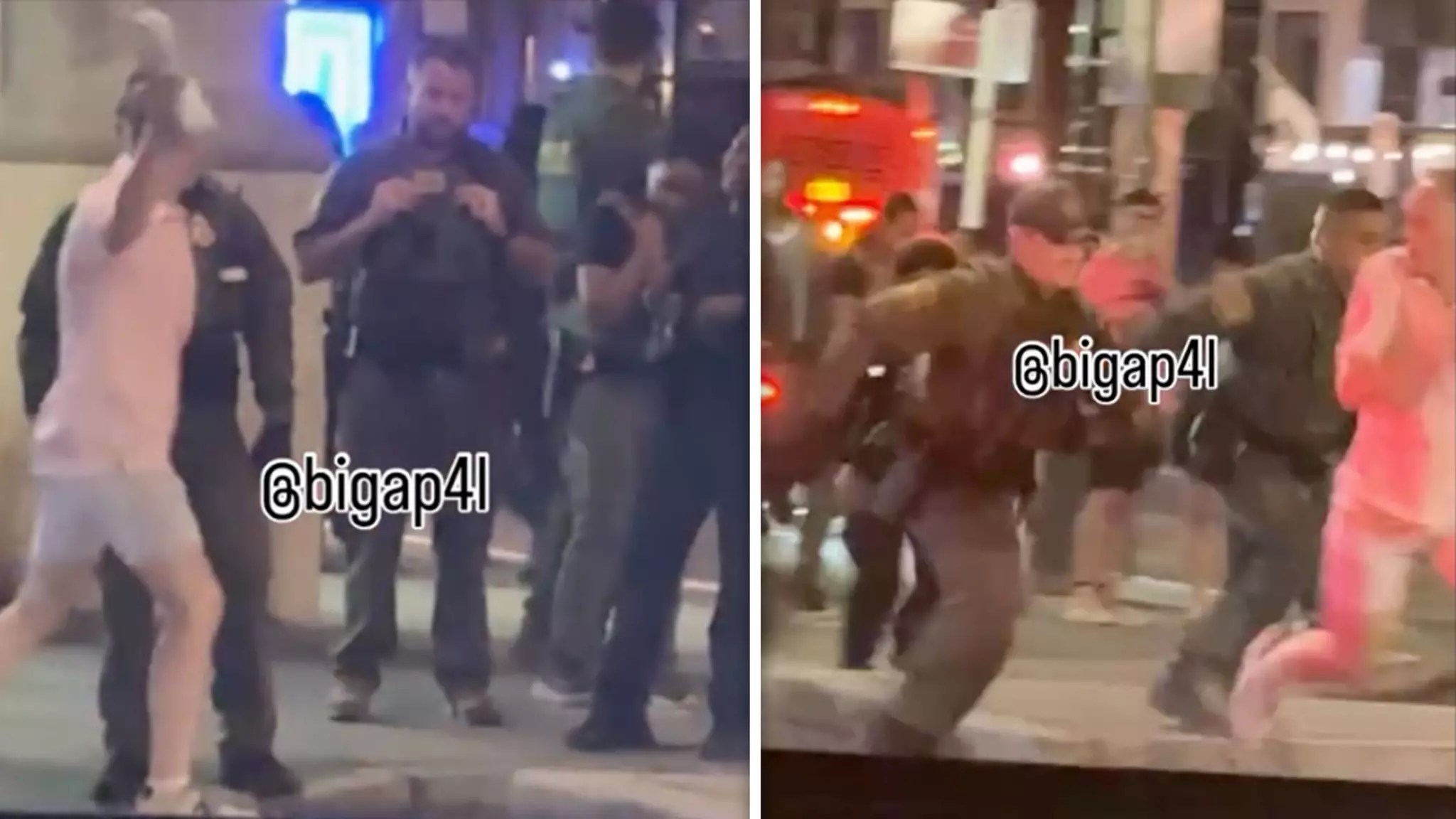Recent events in Washington, D.C., have reignited debates about the role of federal law enforcement and the shifting perceptions of their legitimacy among civilians. A viral incident, where a man unleashed a sandwich at a Customs and Border Protection officer, encapsulates the deep-rooted frustration many citizens harbor towards authorities they perceive as overreaching or disconnected. This act of civil disobedience, seemingly trivial in its form but profound in its implications, underscores a broader societal challenge: how do communities and law enforcement find common ground amidst growing mistrust?
Dissecting the Incident
What begins as a heated confrontation quickly transforms into symbolism—an ordinary citizen using a sandwich as a protest tool, symbolizing frustration with perceived authoritarian presence. The aggressor, identified as Sean Charles Dunn, publicly accosts officers with aggressive language, calling them “fascists” and vocally opposing their presence in the city. His actions culminate in physical assault when he throws the sandwich, striking a federal officer and sparking a rapid police response.
While Dunn’s behavior is undoubtedly disruptive and illegal, it also raises questions about the nature of protest in a climate fraught with tension. Is this act merely juvenile defiance, or a cry for recognition of community grievances? Should law enforcement see such acts as isolated incidents, or as manifestations of a deeper crisis of legitimacy and respect?
The Politics of Policing and Public Perception
The response from authorities, exemplified by U.S. Attorney Jeanine Pirro’s statement supporting the police, reveals an attitude rooted in defending the badge and emphasizing authority. But does this rigidity overlook the underlying frustrations that fuel such incidents? It’s undeniable that the deployment of federal agents during politically charged moments sparks polarization—not only within the city but also across the nation.
This raises a crucial question: can the focus switch from hardline enforcement to community engagement? If laws are enforced with empathy and transparency, perhaps acts of defiance like a tossed sandwich could be seen less as outright rebellion and more as a reflection of societal faults that need addressing. When citizens feel unheard or marginalized, their protests—no matter how unconventional—become expressions of a plea for attention.
Reimagining the Role of Law Enforcement
The controversy surrounding the handling of protests and law enforcement tactics highlights an urgent need for systemic reform, emphasizing trust-building over brute force. Using force prematurely or focusing on minor disruptions often backfires, entrenching divide rather than fostering understanding.
The core issue lies in the delicate balance between maintaining order and respecting individual rights. Citizens must feel safe and respected, even when they dissent, while law enforcement officers carry the burden of protecting public safety. Bridging this divide demands more than rhetorical backing or aggressive posturing—it requires authentic community dialogue, accountability, and a willingness to see protestors—not as enemies—but as participants in a civic conversation.
By embracing the idea that civil disobedience, even when messy or humorous, serves as a vital outlet for free expression, society can begin to heal divisions rather than deepen them. Whether through sandwiches or speeches, fostering mutual respect might be the most powerful tool in transforming moments of chaos into opportunities for growth.







Leave a Reply